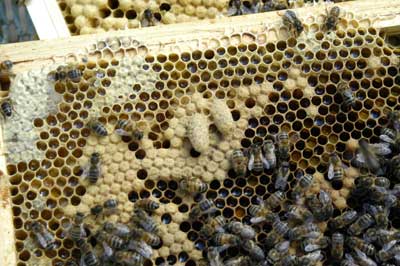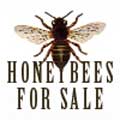Norfolk Honey - sponsor a queen bee

Can we help our honeybees survive Varroa?
Is it possible that the qualities that we beekeepers have valued in our bees for centuries are not the same as those needed by the bees to fight Varroa?
It's only natural that beekeepers value those bees that have the ability make the most honey. We also value highly the bees that are are easy to handle and those that are not too inclined to swarm. These are the kind of qualities that beekeepers have been selecting in their bees for hundreds of years.
But could we be missing other traits that help the bees cope with Varroa mites?
Some researchers suggest that there is the possibility that some bees clean and
groom better than others. And that cleaning bees could be removing some mites
from each other and from the hive.
Are there other other factors that we don't yet recognize that could help our
bees survive? Apart from destroying the mites what else do the chemicals we are
using do to our bees? And if we use less chemicals and remove more drone brood
from our hives how is that affecting the balance in the hive?
What about the genetic makeup of our bees in relation to Varroa? Are there any
clues there to help us?
I think there will always be more questions than answers but the more we can
observe the more we are likely to learn.
Click here to read more about the kind of queen
bees that you could sponsor.

